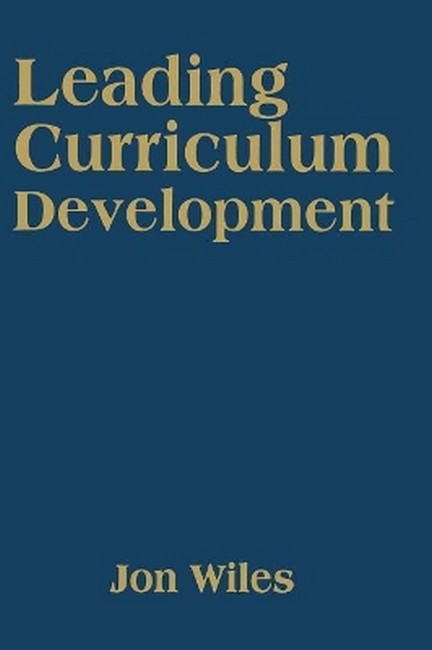Jon Wiles is a highly experienced educator who has provided curriculum leadership to schools and educational agencies for over thirty years. His specialty is the creation and implementation of curriculum plans. Wiles's work as an educational consultant has taken him to hundreds of agencies in more than forty states and a dozen foreign nations in Europe, Asia, Africa, and the Caribbean. Wiles is the author or coauthor of twelve widely used books addressing curriculum and educational leadership. His text, Curriculum Development: A Guide to Practice (Seventh Edition), has been used for nearly thirty years in colleges and universities throughout the world to train curriculum leaders. Other areas of publication by Wiles include teacher training, administration, school supervision, theory of change, politics of education, middle grades education, and technology.
Request Academic Copy
Please copy the ISBN for submitting review copy form
Description
Acknowledgments About the Author Preface List of Figures 1. Defining Effective Curriculum Leadership What Is Curriculum? Curriculum is the Essential Function Dynamic Curriculum Leadership School Leaders Must Also Be Curriculum Leaders The Leader as Helper and Guide Accepting the Challenge of Curriculum Leadership Summary End Notes 2. Basic Tasks of Curriculum Leadership Defining the Program Collarborating for Success Providing the Path Coordinating Activity The Leader's Role Summary End Notes 3. Making Curriculum Purposeful Finding Your School Philosophy Techniques for Finding Consensus If-Then Logic The Role of Standards and Benchmarks Clarifying Goals and Objectives Pre-Assessing School Capacity Establishing a Destination Validation as a Critical Element Summary Sample Problems and Leader Actions End Notes 4. Building the School Curriculum Team Selecting the Team Using Committees to Activate Change Small Groups Conducting Meetings Conferencing Other Methods of Effective Communication Leadership Style and Climate Formation Achieving Consensus for School Improvement Summary Sample Problems and Leader Actions End Notes 5. Constructing the Path for Curriculum Improvement Visioning Clarifying the Steps The Use of Feedback in Curriculum Work Management and Time-Dating Goals Standards as Boundaries, Not Goals Summary Sample Problems and Leader Actions End Notes 6. Detailed Planning to Implement Change Curriculum Mapping Alignment Criteria Standards in the Curriculum An Emerging Blueprint for School Improvement Planning Tools That Empower Summary Sample Problems and Leader Actions End Notes 7. Curriculum Improvement Means Staff Development Teachers as the Critical Ingedient Why Many Teachers Dislike Staff Development Preferred Staff Development Designs Assessing Staff Development Efforts A Word About Adult Learners Curriculum as the Rationale for Staff Development Summary Sample Problems and Leader Actions End Notes 8. Closing the Circle Through Evaluation General Functions A Generic Design Four Purposes of Evaluation Eight Areas for Study Using Technology in Evaluation Summary Sample Problems and Leader Actions End Notes 9. Coordinating Successful Curriculum Work Some Reasons for Curriculum Failure The Elements of a Comprehensive Plan We're All in This Together Planning Tools Reporting to the Board and Superintendent Timing Is Everything in School Improvement Program Evaluation and Review A Bath Tub Filling Up Boosters That Can Accelerate Change Summary Sample Problems and Leader Actions End Notes Resource A. Reproducible Planning Sheets Resource B. Standard Curriculum Planning Resources Resource C. Curriculum Resources Sites on the Internet Resource D. Recommended Resource for Keeping Up-to-Date Resource E. Glossary of Terms References Index

